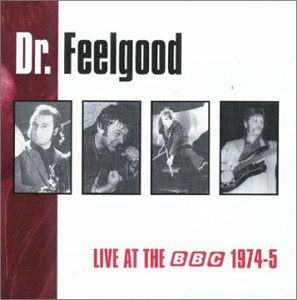
- Format: MP3

With 20 years having elapsed since the firestorm of punk first set hippie beards a-blazing, the late 1990s saw history finally get around to some serious re-evaluation: the realization that the bands which started the whole ball rolling were not American proto-snots from some vast Midwestern garage; that the Stooges and the Velvets were unknown to most of the kids who were forming bands (you can't afford imports when you're young and on the dole); and that Dr. Feelgood kicked harder ass than all those Yankee squealers put together. Punk may not have begun with them, but this was where it came together. The Feelgoods were great. Totally retro in their wedding suits and R&B chops; tight, aggressive, and scarily tough. They could beat up your brother from 15 yards, and they wouldn't even spill their drinks. "Hiroshima in a pint glass" is how one U.K. music mag described them, but when the band's third album, the live Stupidity, kicked its way to number one, even that seemed an understatement. They didn't drink from pint glasses, they chewed their beer straight from the hops — and that included guitarist Wilco Johnson, a confirmed teetotaller. Live at the BBC is exactly what it says: highlights of three shows recorded for U.K. radio between 1974-75, when punk was in its diapers and the Feelgoods were at their peak. With Johnson immolating the front rows with his Telecaster; Lee Brilleaux's harp and vocals as sharp as the switchblade crease in his pants. The band's repertoire might have marched straight out of a Stones show, circa 1963, but the tension and menace was pure Clockwork Orange, if the droogs had been gangsters instead of a bunch of fey art critics. The album is pure, seamless dynamite. "Talk to Me Baby" is a magisterial summons, "Roxette" goes from brash to positively brazen in the course of a chord, and a brooding "You Shouldn't Call the Doctor" simply dares you to mess with it. Even the absence of some of the band's best known cuts — no "Keep It Outa Sight," no "I'm a Man," no "Back in the Night" — cannot detract from the sheer magnificence of the Feelgoods unleashed, because you can't help but wonder, if they'd added those songs, what would they have omitted in their stead? What could they have omitted?